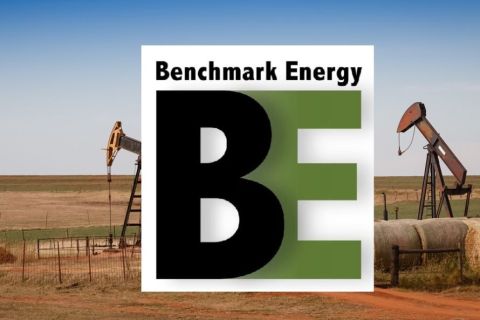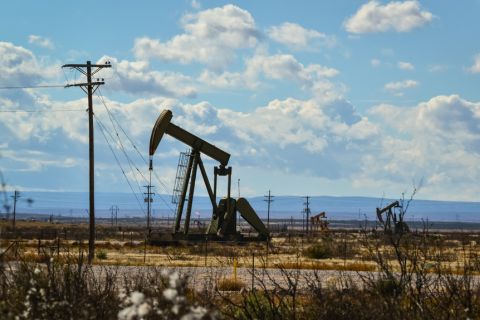From Australia (LB): Wood Group has secured a FEED contract for the Woodside-operated proposed Browse (SEN, 32/8) FLNG development, offshore Western Australia.
Wood Group Kenny (WGK) will perform all design engineering for the insulated production flowline system required for the asset’s offshore gas-condensate fields—Brecknock, Calliance and Torosa—located 300 km from the Kimberly coast.
The 12-month contract, worth $6 million and effective immediately, will be delivered from WGK’s Perth office.
The primary focus of the Browse subsea flowline FEED contract is to develop the engineering and design of the rigid flowline system to assist the Browse joint-venture participants to take final investment decision, which Woodside is targeting in second-half 2016.
The award follows WGK’s successful delivery of the preliminary engineering for the Browse flowline system during the basis of design phase.
It also continues the long-term partnership between both companies. WGK has worked on projects including Greater Western Flank Phase 2, Pluto, Angel and the Trunkline System Expansion Project.
Talisman Energy Norge has exercised an option to extend the contract for the Petrojarl Varg FPSO vessel for three years until the end of June 2019.
Talisman has one remaining option to extend the contract period for a further three years.
The ship-shaped, turret moored FPSO has been in production on the Varg Field off Norway since 1998.
Bechtel has been selected by Delfin LNG to carry out a FEED study for the first U.S.-based floating LNG (FLNG) vessel.
The vessel is planned to go into operation at Port Delfin, a proposed deepwater port and FLNG facility that will be located about 50 miles off the coast of Louisiana.
Once the final investment decision is made, Bechtel is expected to design, build and commission the FLNG vessel.
Port Delfin consists of onshore gas compression facilities and a deepwater port that uses existing pipeline infrastructure in the Gulf of Mexico to transport natural gas offshore to four moored floating liquefaction vessels.
Delfin has submitted an application to the Maritime Administration and the U.S. Coast Guard for authorisation to construct, own and operate a deepwater port capable of exporting 12.5 Bcm/year of natural gas or 9.2 MMtpa of LNG. Delfin has signed joint-development agreements with Höegh LNG and Enbridge for the scheme.
SBM Offshore has completed the $1.55 billion project financing for the Cidade de Saquarema (32/3) FPSO vessel, the largest project financing in the company’s history.
The FPSO Cidade de Saquarema is owned and operated by a joint venture (JV) owned by affiliated companies of SBM Offshore (56%), Mitsubishi Corporation (20%), Nippon Yusen Kabushiki Kaisha (19%) and Queiroz Galvão (5%).
The vessel has processing capacity of up to 150 Mbbl/d of crude oil and 6 MMcm/d of gas, and storage capacity of about 1.6 MMbbl of crude oil. The JV will own and operate the vessel on a 20-year charter service for Tupi.
Combined with the $1.45 billion project financing for the FPSO Cidade de Maricá, the deal completes the successful financing of $3 billion for two sister units destined for the Lula Field in the presalt province offshore Brazil.
Block BM-S-11 is under concession to a consortium comprised of Petrobras (65%), BG (25%) and Petrogal Brasil (10%).
Technip has been awarded an engineering, procurement, construction, installation and commisioning contract by Petronas Carigali for the tie-in of the PFLNG1 (32/8) facility to the KAKG-A platform in the Kanowit Field, located 200 km offshore Bintulu, East Malaysia, in 80 m of water.
The contract covers the procurement and installation of a 3.2-km flexible flowline between the existing KAKG-A central processing platform in the Kanowit Field to the PFLNG1 riser. It also includes modification and tie-in works at KAKG-A.
Technip’s operating centre in Kuala Lumpur will execute the contract. The flexible flowline will be manufactured in Asiaflex Products, Technip’s manufacturing facility in Tanjung Langsat, Johor, Malaysia. It will then be installed by the group’s multipurpose vessel, Deep Orient.
The installation campaign is scheduled for completion in late 2015.
The PFLNG1 vessel, which will produce 1.2 million tonnes per year of LNG, will play a significant role in Petronas’ efforts to unlock gas reserves in Malaysia’s remote and stranded fields to help meet the growing demand for gas, the company said.
The first oil output from a long-duration test in Brazil’s giant Libra (32/8) offshore area will flow in first-quarter 2017, platform joint operator Odebrecht Oil & Gas said.
That is later than the 2016 second-half start forecast in June by Brazil’s state-run oil company Petrobras, which manages exploration in Libra.
A Petrobras-led consortium won E&P rights to Libra, one of the world’s largest recent oil discoveries, in 2013. Total and Royal Dutch Shell are also parts of the group, with 20% each, while Chinese state oil companies CNOOC and China National Petroleum Co. hold 10% each.
“The test will begin in the first quarter of 2017,” Rogério Ibrahim, CFO of engineering group Odebrecht, said. “We will deliver the ship at the end of December [2016] and the receivables start flowing [to us] in 2017.”
Cosco Corp. has extended the delivery dates of a floating accommodation unit (FAU) at the request of a shipowner.
Cosco’s Nantong Shipyard in China had secured contracts for the conversion of two semi-completed hulls to high-end FAUs.
The first FAU has been delivered to the shipowner and the delivery date of the second FAU will be extended for a period of not more than 12 months from its original delivery date of October 2015.
Recommended Reading
Benchmark Closes Anadarko Deal, Hunts for More M&A
2024-04-17 - Benchmark Energy II closed a $145 million acquisition of western Anadarko Basin assets—and the company is hunting for more low-decline, mature assets to acquire.
Athabasca Oil, Cenovus Energy Close Deal Creating Duvernay Pureplay
2024-02-08 - Athabasca Oil and Cenovus Energy plan to ramp up production from about 2,000 boe/d to 6,000 boe/d by 2025.
Novo II Reloads, Aims for Delaware Deals After $1.5B Exit Last Year
2024-04-24 - After Novo I sold its Delaware Basin position for $1.5 billion last year, Novo Oil & Gas II is reloading with EnCap backing and aiming for more Delaware deals.



